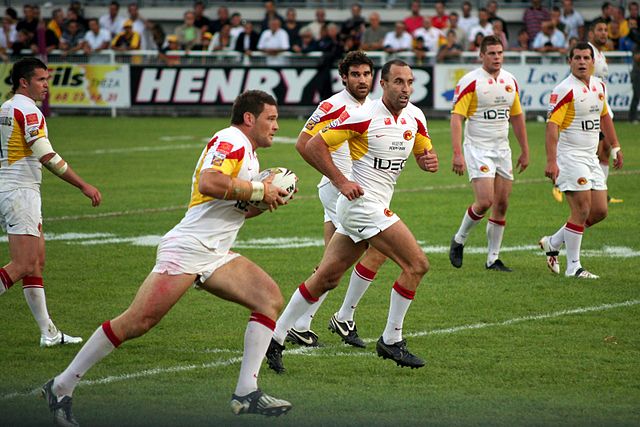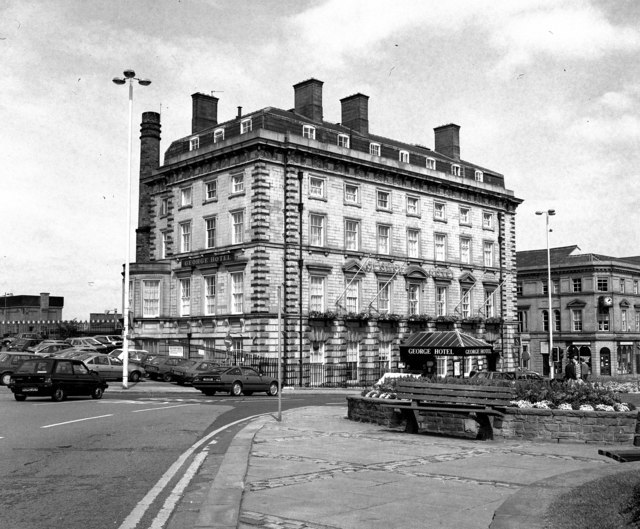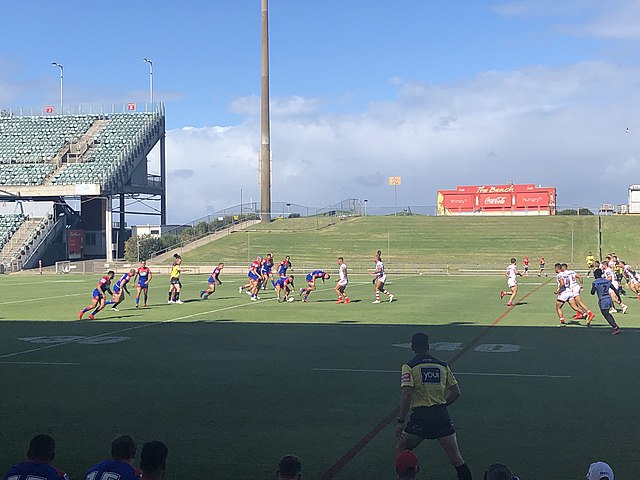Rugby league has been played in France since 1934. As with rugby union, rugby league was introduced by the English and the heartland of the game is in the south of France.
The Grand Final of the Elite One Championship 2016–2017
The French national rugby league team in 1951
France playing Australia, November 2004
Catalans Dragons are France's most successful team to compete in the RFL
Rugby league football, commonly known as rugby league in English-speaking countries and rugby XIII in non-Anglophone Europe and South America, and referred to colloquially as rugby, football, footy or league in its heartlands, is a full-contact sport played by two teams of thirteen players on a rectangular field measuring 68 m (74 yd) wide and 112–122 m (122–133 yd) long with H-shaped posts at both ends. It is one of the two major codes of rugby football, the other being rugby union. It originated in 1895 in Huddersfield, Yorkshire, England, as the result of a split from the Rugby Football Union (RFU) over the issue of payments to players. The rules of the game governed by the new Northern Rugby Football Union progressively changed from those of the RFU with the specific aim of producing a faster and more entertaining game to appeal to spectators, on whose income the new organisation and its members depended.
An attacking player attempts to evade two defenders.
George Hotel, Huddersfield, the birthplace of rugby league
The first ever Challenge Cup Final, 1897: Batley (left) vs St Helens (right)
A typical game of rugby league being played








